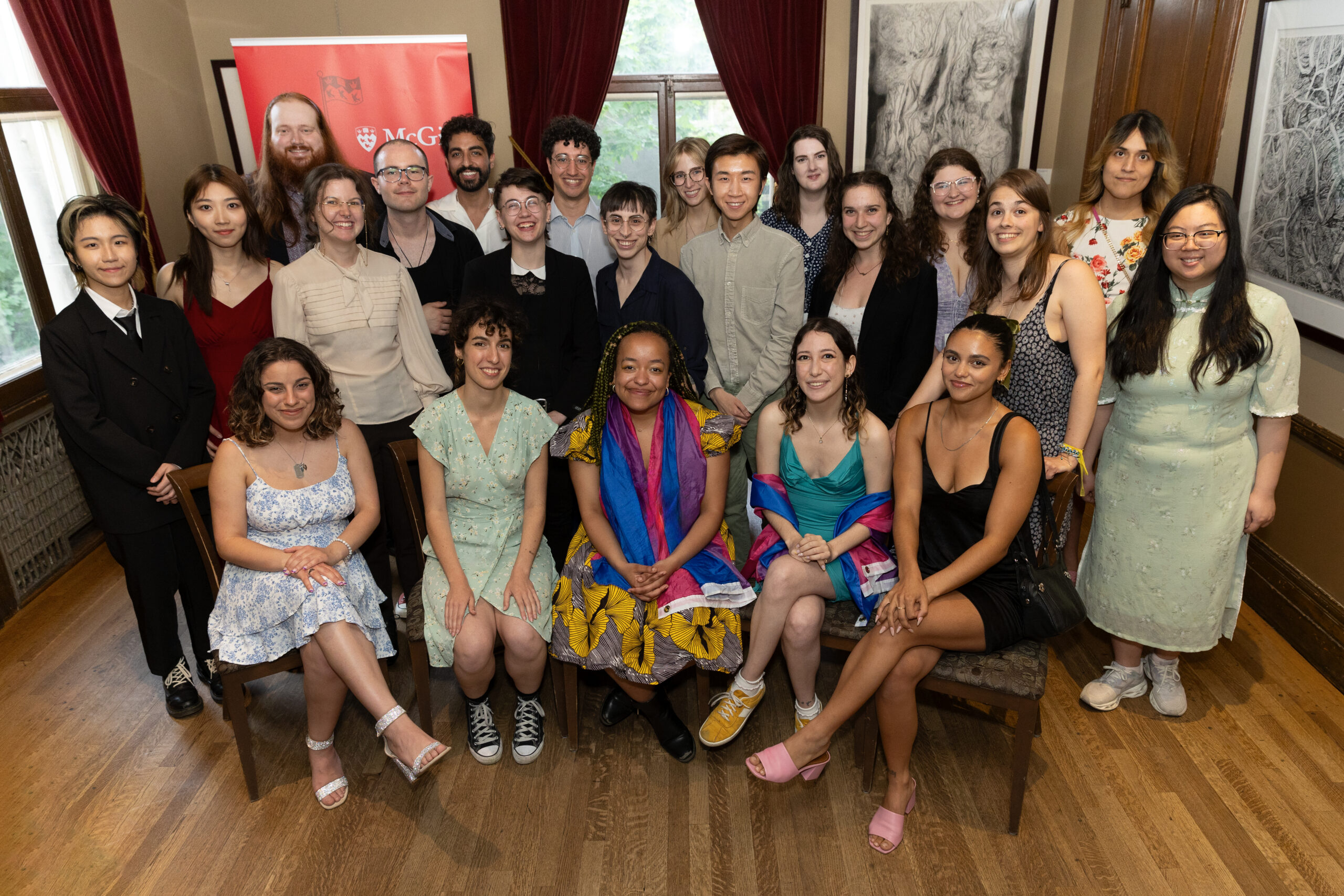
More than 100 people filled the Thomson House Ballroom on May 21 for McGill’s seventh annual Lavender Graduation (Lav Grad), the celebration of graduating McGill students who identify as two-spirit, lesbian, gay, bisexual, trans, queer, intersex, asexual, questioning, pansexual, or non-binary (2SLGBTQIA+).
“You are the future,” Brian Lewis, a professor in McGill’s Department of History and Classics, told the 45 Lav Grad participants from diverse academic fields in a keynote address that emphasized the importance of activism, both large scale and quietly personal.
“The great wide world out there is obviously not how we want it to be,” he added, mentioning the climate change crisis, the rolling back of feminist and 2SLGBTQIA+ advances, and the rise of authoritarian regimes.
But, he said, there are grounds for optimism.
“I urge you to keep the faith. Whether you opt for upfront activism, or behind-the-scenes organization, or are simply out and proud in front of family, friends, and society, you’ll be doing your part to make a difference,” he said.
“There will be setbacks and reversals… but don’t become discouraged or divided. You’re in it for the long haul and will need patience in playing the long game. Given your enthusiasm, your achievements, and your commitment, we can look to the future with considerable optimism. Things can – will – get better.”
‘Undeniable progress’ has been made
Lewis recounted his own life to illustrate the stops and starts of progress. He was born in the 1960s, a time when queer people were despised and sometimes imprisoned.
“To be openly queer would probably cost you your job, your family, and your dignity,” he said.
Over the decades, progress has been made. Despite many setbacks, including the homophobia sparked by the AIDS pandemic, much of the world is more welcoming toward members of the 2SLGBTQIA+ community.
Lewis highlighted the role of “ordinary folk – actually extraordinary folk – people like you and me.”
“They didn’t give up in the face of resistance or backlashes. In fact, the opposition galvanized them into action,” he said.
The “undeniable progress” that has been made globally has been reflected at McGill, Lewis noted. He said that when he arrived at the University in 1995, the bulk of the queer activism was driven by students, most notably Gay McGill (now Queer McGill).
Lewis spoke about his own contributions to issues of equity and diversity, including being the first openly gay chair of a department at McGill.
“I’ve done my little bit in my own quiet way. I hope that I’ve helped open minds and expand horizons along the way,” he said.
McGill ‘transformed’
Since 2000, McGill has been “transformed,” thanks to “the introduction of a plethora of resources, support networks, and out faculty and staff,” Lewis said.
Lav Grad was organized by some of those organizations and resources: the McGill Queer Alum Association; the Joint Board-Senate Equity Diversity and Inclusion Committee on Queer People; and the Equity Team.
Andrea Clegg, Senior Employment Equity Advisor at McGill and one of the event’s organizers, served as emcee.
“As someone with multiple marginal identities who has been a queer alumnus of McGill for 37 years and counting, my education – and in particular, my education from McGill – has been instrumental in finding an engaged and meaningful place for myself in this less-than-perfect world,” said Clegg.
